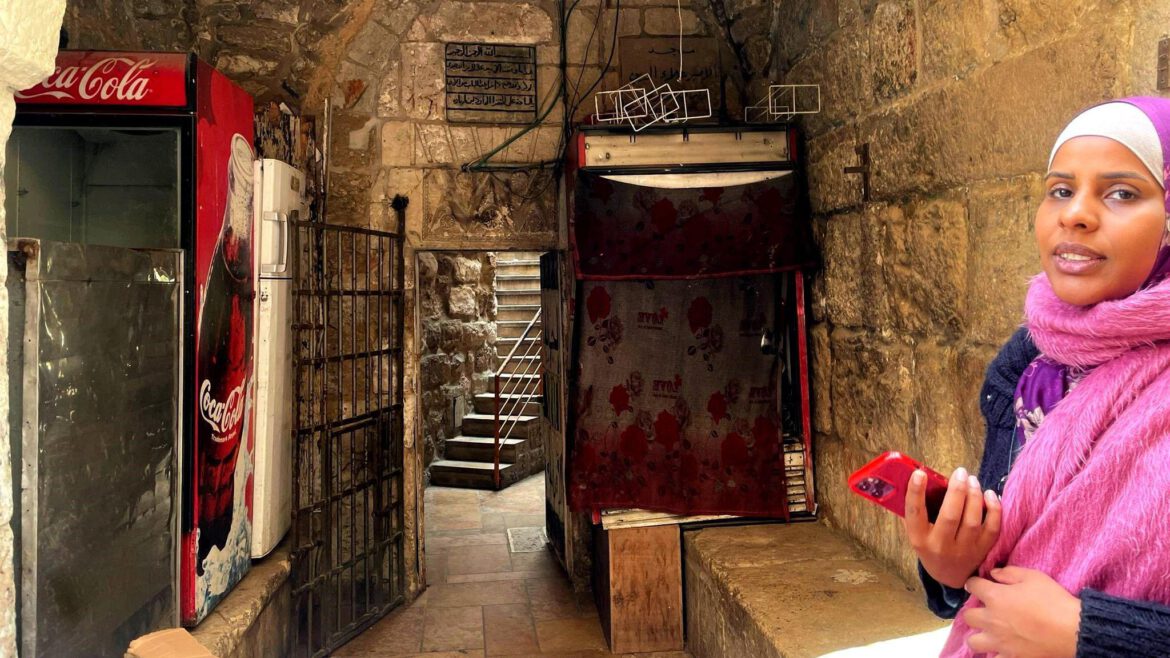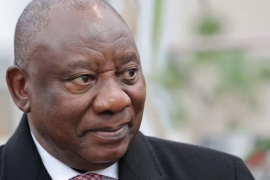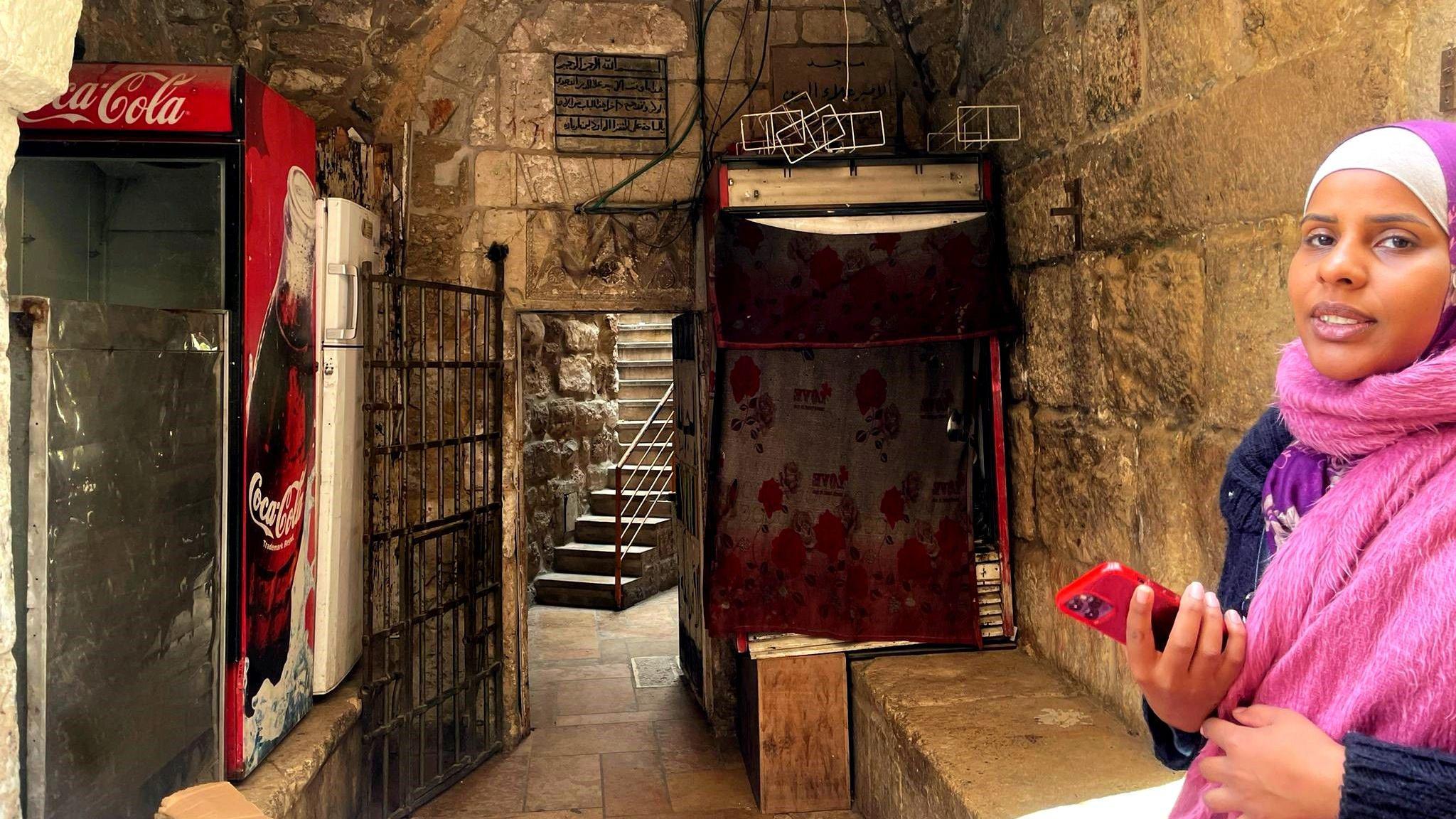
Muslims dey celebrate Eid al-Fitr wey mark di end of di holy month of Ramadan, but dis year di fight fight for Gaza don spoil di festivities, particularly in di occupied Palestinian territories.
Di call to prayer through di rough streets of East Jerusalem old city, wey pass Israeli checkpoint bifor e reach di door of 35-year-old Ilham home.
“You fit hear?” she ask happily. “Na from al-Aqsa.”
Al-Aqsa Mosque – one of di holiest sites in Islam – near am. Na also contest land wey dem know as di Temple Mount, di holiest site in Judaism.
She know how privileged she dey to dey live for here.
“Na spiritual gift,” she tok. “Evribody dey envy me. Dem tell me say, ‘You dey so lucky!'”
Di social worker na one of about 450 Afro-Palestinians, descendants of pilgrims from Chad, Nigeria, Senegal and Sudan, wey dey live in dis part of di old city Muslim quarter.
Dia homes dey among di prisons wey di Ottomans use bifor British take control of Jerusalem for 1917.
Years later, afta di British authorities carry out failed attempt to assassinate di highly controversial Grand Mufti of Jerusalem, Sheikh Haj Amin al-Husseini, gift di land to di Afro-Palestinian community as gesture of goodwill. Na one Afro-Palestinian guard save di Grand Mufti life, as im sacrifice im own life in di process.
Di community, wey don dey di area for three to four generations, dem now call am di guardians of al-Aqsa.
Dis year, Ilham tok say, no amount of joy fit replace di guilt and helplessness Palestinian Muslims wey dey live for East Jerusalem dey feel.
“You fit say, ‘Happy Eid’, and gada and sddon wit family, but wetin be Eid?” she ask, laughing ironically. “Wen Ramadan no dey, Eid no dey. Notin dey normal for our daily lives. We just sidon dey tink about Gaza.”
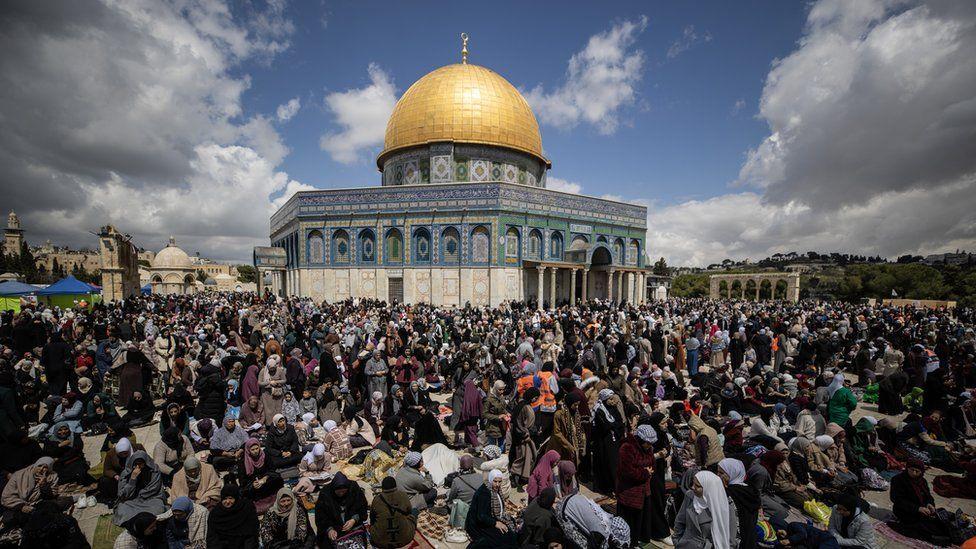
Al-Aqsa mosque dey always crowded for Friday prayers, but di Israeli authorities don restrict access during Ramadan in recent years, on grounds of security.
Small flare-up around al-Aqsa dem don report locally but nothing on di scale of incidents wey don happun in di past.
Dis year, wit di conflict in Gaza, fear bin dey say di tension fit spread, and dem announce say na only men ova 55 and women ova 50 dem go allow to enta.
Despite dis, guards wey position outside allow visitors of all ages, as dem like, and tens of thousands of pipo don gada to pray at di site from wey dem believe Prophet Muhammad go heaven.
Ilham herself dey enta without difficulty.
She find one spot on di floor outside di Dome of di Rock, one mosaic-cover shrine for di centre of di mosque grounds, among thousands of oda women wey seat for di noon prayer, Duhur.
Di imam start wit sermon. Only one tin dey for im mind.
“Harsh cold, deadly frost, and scenes of limbs and blood fountains from our dear land, Gaza… We dey seek refuge in God from hearts as hard as stones or even harder, devoid of compassion, mercy, and humanity. For you, Gaza, may God help you.”
Everyone dey pray for Gaza. E don become a form of resistance. Some Muslims, wey neva fast bifor during Ramadan, fast for di first time dis year for dia fellow Palestinians.
Prof Mustafa Abu Sway, wey lectures for di mosque, tok say Muslims for East Jerusalem dey heartbroken.
“Ramadan na month of spirituality, introspection, charity and care for our sisters and brodas in humanity. While we kontinu to do our best, dis Ramadan dey marked by genocide for Gaza wia everitin dey lack except for death, famine and pain.”
Israel tok say di accusations of genocide dey “outrageous” and e get “unwavering commitment” to international law.
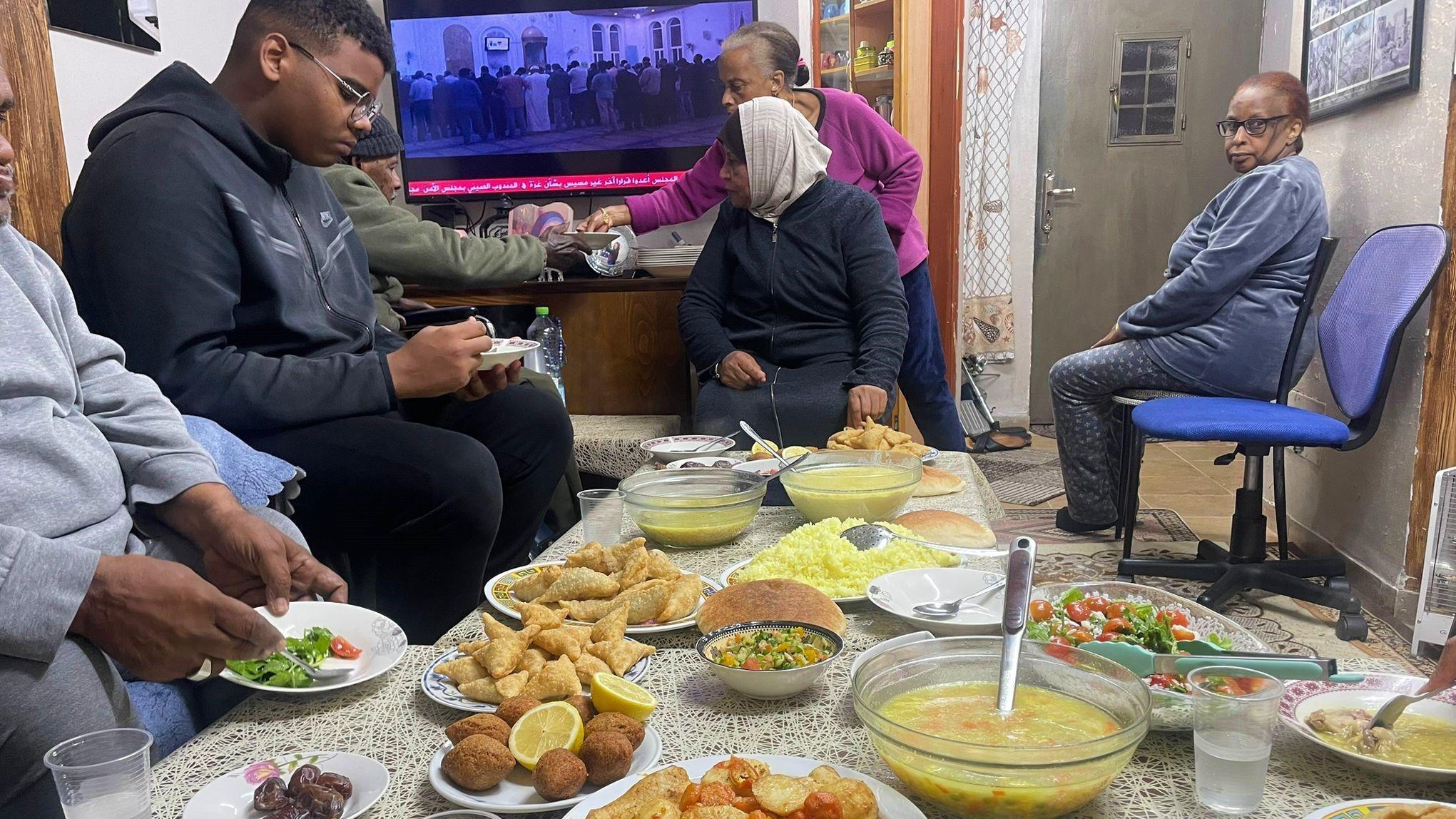
For her one-minute walk home, Ilham speed pass market stall wey dey di alleys in di Muslim quarter.
As she enta her neighbourhood, plenty artwork beautify di brick walls. One painting show outline of di African continent, wit outline of di map of Palestine attach to Egypt – like jigsaw puzzle wey fit. Di Dome of di Rock dey lightly sketched on to am.
She don make am home just in time for Iftar – di food wey dem dey chop afta fasting – wit her family, including her uncles and aunts. Di house dey busy and di chat dey dominated by her mum and her aunts.
Di gist continuously switch from wetin dey news to social issues, how dem spend dia day to go pray, and even Gaza, as dem prepare to chop. Den e change to di war for Gaza. Ilham aunt tok: “Oh God, we dey chop, unda one roof. Oh God, here we dey, warm.”
Dis Eid, members of di Afro-Palestinian community tok say dem dey show solidarity wit dose wey dey Gaza. Na why dem fit only dey celebrated in name.
“Joy no dey,” Ilham tok. “We neva decorate our homes, we no get visitors. Na only di spiritual and ritualistic elements of Ramadan remain.”

